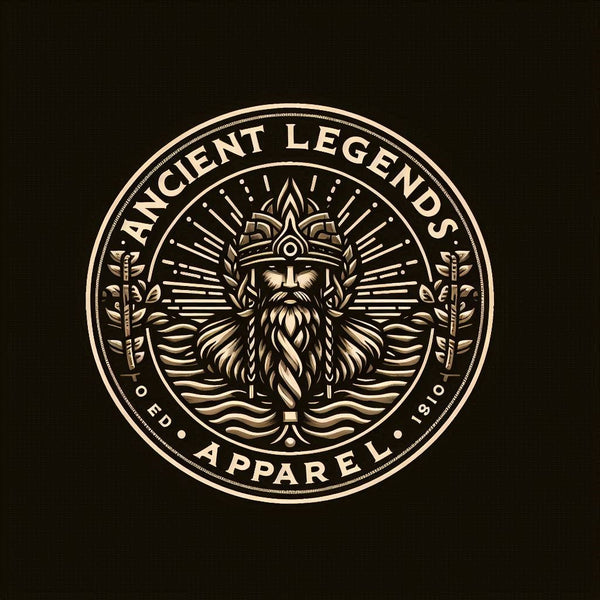Warrior Code and Ethics in Roman Legends
Karl FShare
INTRODUCTION
Honour, bravery, discipline, and justice – these were the pillars of Rome's warriors' ethical code, shaping a societal framework that elevated Rome to the heights of power in the ancient world. Unearthed in the dust-laden tales of ancient Roman legends, the kernel of this article is the exploration of the warrior code and ethics, a fascinating spectrum shining light on the illustrious Roman legendary past. Before us lies an intellectually stimulating journey, swaddled in intriguing historical mystery and touched by riveting tales of gods, monsters, valorous warriors, and epic battles.
ORIGIN AND CULTURAL CONTEXT
The roots of the Roman warrior code and ethics date back to the very founding of Rome in 753 BCE, believed to have come from the mythical demi-god: Romulus. Descendant of Mars, the God of War, Romulus laid the groundwork for a warrior ethos intrinsic to the fabric of Roman society. Thus, the ethic of Roman warriors was formulated on a foundation of divine ordination, blessed by Mars himself.
The Roman society was a highly militaristic one. Young Roman boys were schooled in the art of warfare as early as seven years old, imbibing the virtues of discipline, bravery, and justice which dominated their ethos. Military service was viewed as a sacred duty every Roman should fulfill, and those who exhibited exceptional courage and honor in battle were revered, their names inscribed in the annals of history.
THE LEGEND OR STORY
While the annals of Roman history are populated with countless legends of brave warriors, none is more captivating than the hero Horatius Cocles. The tale is set during the war between Rome and the Etruscan king, Lars Porsena. As the enemy force threatened to invade the city via the Pons Sublicius, the narrow bridge into Rome, Horatius stood his ground. With unprecedented courage, Horatius, along with two other warriors, held off the enemy, giving his fellow Romans time to demolish the bridge.
As the bridge collapsed, Horatius' two companions rushed back to safety. However, he stood alone against the onslaught, a bulwark against the invincible enemy. Only when the bridge had finally given way did Horatius plunge into the Tiber, swimming with full armor back to his city, hailed as a savior and a paragon of bravery.
INTERPRETATIONS AND SYMBOLISM
The legend of Horatius Cocles was not merely a tale of a brave warrior but also functioned as an emblem of the Roman warrior code. His courage, selflessness, and unwavering devotion to Rome were embodiment of Roman warrior values. The Tiber, the body of water he had to cross to secure his city's safety, could be seen as a symbol of the hardships and adversities that Roman warriors had to conquer. His decision to remain while his comrades fled back to safety is indicative of the supreme value Romans placed on honor and valor.
COMPARISONS IN OTHER CULTURES
The values of honor, bravery, and selflessness symbolized by Horatius Cocles resonate significantly in other warrior cultures from different times and places. In Ancient Greece, these were the attributes of heroes like Achilles and Hector. In Norse mythology, such values marked the deeds of the famed Viking warriors. In Japanese culture, the Samurai lived by the bushido - a complex, unwritten code dictating virtues similar to those championed by the Romans' warrior ethics.
MODERN REFERENCES AND POP CULTURE
The echoes of the Roman warrior code are apparent in the contemporary sphere, influencing different facets of modern life. In the sphere of pop culture, the Roman warrior ethos permeates literature, film, and games. The blockbuster film "Gladiator" embodies the essence of the Roman warrior code in its protagonist, Maximus. The video game franchise "Assassin's Creed" echoes Roman values with its credo: "Stay your blade from the flesh of an innocent," valuing justice above all else.
LEGACY AND LASTING MYSTERIES
The legacy of the Roman warrior code has shaped Western Civilization, fostering virtues such as honor, bravery, and justice. These virtues are woven into the societal and cultural fabric, influencing personal conduct, business ethics, sporting spirit, and even military discipline.
However, the passage of time has shrouded the Roman warrior code in shadowy veils of mysteries, stirring intriguing questions: Were the fabled stories of valor exaggerated beyond reality? Were the warrior code's principles always upheld, or were they compromised for personal gain or political ambition?
Unraveling these mysteries would demand a continuous exploration of archaeological testimonies, ancient texts, and Roman folklore, igniting the eternal flame of curiosity and learning. Thus, the Roman warrior code and its associated legends will continue to captivate, encourage, and educate, staying alive in the collective human memory as glimpses of past glory.
